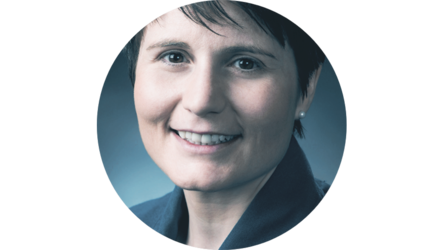Robotics Workshop 2024 challenges students to develop their own Mars Rovers

This year’s Robotics Workshop 2024, hosted by ESA Academy in collaboration with the ESA's Automation and Robotics Section, provided an unforgettable week of learning, hands-on experience, and exploration for 30 talented engineering and computer science students from 14 different ESA Member States and Canada. Held at ESTEC, in The Netherlands, the workshop ran from 29 October to 1 November 2024.
In its second edition, and marking the first ESA Academy course hosted at ESTEC, the workshop was designed for Bachelor and Integrated Master’s level students with an engineering, computer science, or robotics background. Through this workshop, students delved deep into space robotics by engaging with ESA’s ExoMy rover, a fully open-source, 3D-printed robot based on the Rosalind Franklin rover scheduled for launch toward Mars in 2028.
Robotics, AI, and Martian challenges

Over the course of four days, students embarked on a journey through robotics design, coding, and artificial intelligence, focusing on the complexities of Mars exploration. The ExoMy rover, equipped with six wheels, a camera, and a Raspberry Pi computer, served as the ideal learning platform. “The robotics workshop was the perfect opportunity to learn what ESA does, how robots work, and why space is challenging, all while solving problems, having fun, and making friends with a diverse group of talented people,” said a student from the University of Cambridge.
On the first day, students were introduced to the basics of robotics in space exploration, ExoMy's hardware and software, and the ROS2 (Robot Operating System) framework. Working in groups of five, they took to the simulated Martian surface, where they could control ExoMy with a gamepad, experiencing firsthand the rover’s mechanics and manoeuvring skills.
By the second day, participants were ready to tackle ExoMy's locomotion system. Through lectures and hands-on activities, they developed their own algorithms, giving ExoMy multiple ways to navigate rough, Mars-like terrain. This allowed students to understand why different locomotion modes are crucial for rovers on planetary surfaces.

The third day offered a fascinating look into AI and object recognition, both critical for autonomous Mars missions. Students trained ExoMy to identify a specific object — a blue ball — by taking hundreds of images and labelling the object's location to train a machine learning algorithm. Watching ExoMy later identify and react to this object demonstrated the power of AI in overcoming Mars' long communication delays.
On the final day, students combined their newfound skills in a challenging task: coding ExoMy to autonomously locate and drive towards an object on the simulated Martian landscape. Although the starting point was known, the students had no prior knowledge of the object’s position, requiring them to develop algorithms for different scenarios. This exercise pushed each group to think creatively and strategically, resulting in the exciting sight of rovers independently navigating and detecting targets on the Martian terrain.
“In just one week, I went from knowing nothing about rovers to successfully operating one!” exclaimed a student from the University of Lisbon. “It’s incredible how fast you can learn with hands-on guidance from ESA experts. The final project – guiding ExoMy rovers over a simulated Martian surface – felt surreal, knowing we were recreating the challenges of the real ExoMars mission!”
An unforgettable experience

In addition to technical exercises, students were treated to a special tour of the Test Centre at ESTEC, which includes an anechoic chamber and the Large Space Simulator. This behind-the-scenes experience offered a rare glimpse into the facilities where ESA conducts critical testing for spacecraft.
As the workshop concluded, students presented their solutions and were graded, earning a course transcript and a certificate of participation. With these credentials, they can apply for ECTS credits at their respective universities, further enriching their academic careers.
The Robotics Workshop 2024 has inspired the next generation of Mars explorers and robotics engineers, empowering them with essential skills and memorable experiences. “Thank you so much for setting up this interactive and engaging programme,” summarised a student from the Technical University of Munich. “The interdisciplinary teamwork was invaluable, as bringing together people with different backgrounds is crucial for successful space projects!”
- For more information on upcoming ESA Academy training courses, please visit the ESA Academy website or reach out to academy.training@esa.int















 Germany
Germany
 Austria
Austria
 Belgium
Belgium
 Denmark
Denmark
 Spain
Spain
 Estonia
Estonia
 Finland
Finland
 France
France
 Greece
Greece
 Hungary
Hungary
 Ireland
Ireland
 Italy
Italy
 Luxembourg
Luxembourg
 Norway
Norway
 The Netherlands
The Netherlands
 Poland
Poland
 Portugal
Portugal
 Czechia
Czechia
 Romania
Romania
 United Kingdom
United Kingdom
 Slovenia
Slovenia
 Sweden
Sweden
 Switzerland
Switzerland


























